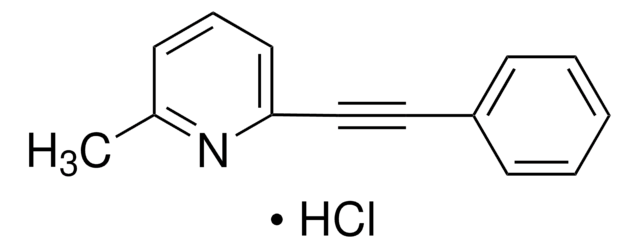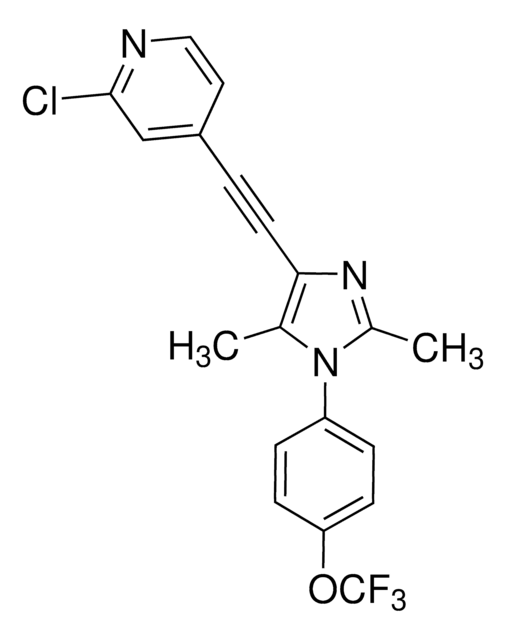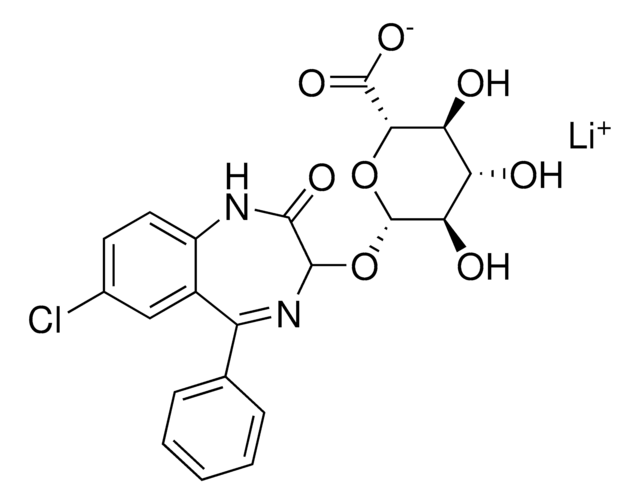445874
mGluR5 Antagonist, MTEP
The mGluR5 Antagonist, MTEP, also referenced under CAS 329205-68-7, controls the biological activity of mGluR5. This small molecule/inhibitor is primarily used for Neuroscience applications.
Synonym(s):
mGluR5 Antagonist, MTEP, 3-((2-Methyl-1,3-thiazol-4-yl)ethynyl)pyridine
About This Item
Recommended Products
Quality Level
Assay
≥98% (HPLC)
form
solid
manufacturer/tradename
Calbiochem®
storage condition
OK to freeze
protect from light
color
white to yellow
solubility
methanol: 1 mg/mL
DMSO: 5 mg/mL
shipped in
ambient
storage temp.
2-8°C
InChI
1S/C11H8N2S/c1-9-13-11(8-14-9)5-4-10-3-2-6-12-7-10/h2-3,6-8H,1H3
InChI key
NRBNGHCYDWUVLC-UHFFFAOYSA-N
General description
Biochem/physiol Actions
mGluR5
Packaging
Warning
Reconstitution
Other Notes
Busse, C.S., et al. 2004. Neuropsychopharmacology29, 1971.
Roppe, J.R., et al. 2004. Bioorg. Med. Chem. Lett.14, 3993.
Klodzinska, A., et al. 2004. Neuropharmacology47, 342.
Cosford, N.D.P., et al. 2003. J. Med. Chem.46, 204.
Brodkin, J., et al. 2002. Eur. J. Neurosci.16, 2241.
Legal Information
Storage Class Code
11 - Combustible Solids
WGK
WGK 1
Flash Point(F)
Not applicable
Flash Point(C)
Not applicable
Certificates of Analysis (COA)
Search for Certificates of Analysis (COA) by entering the products Lot/Batch Number. Lot and Batch Numbers can be found on a product’s label following the words ‘Lot’ or ‘Batch’.
Already Own This Product?
Find documentation for the products that you have recently purchased in the Document Library.
Our team of scientists has experience in all areas of research including Life Science, Material Science, Chemical Synthesis, Chromatography, Analytical and many others.
Contact Technical Service








